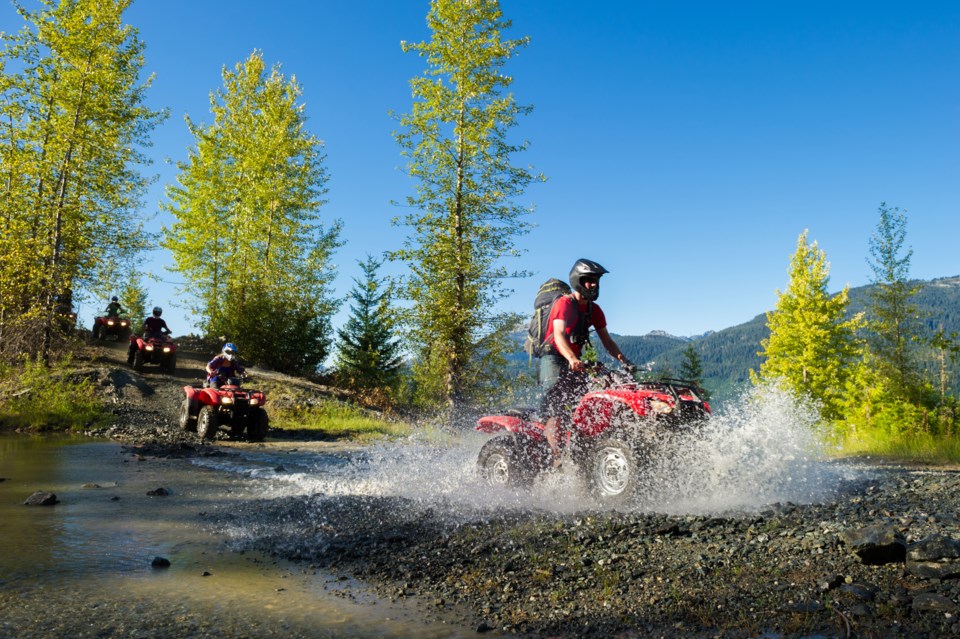Individuals living in Northwestern Ontario know its beauty. It is no wonder that many choose to explore its many trails and wilderness using off-road vehicles and snow vehicles.
However, the law around the use of off-road vehicles and snow vehicles can be complex and spans many different acts and regulations depending on your location and use of the off-road vehicle. As injury lawyers, we see the effects that an off-road vehicle accident can have on our clients. For that reason, we felt it would be beneficial to the public to provide them with general legal information concerning the use and operation of off-road vehicles.
Off-Road Vehicles
The definition of an off-road vehicle under the Off-Road Vehicle Act and its regulation, is incredibly broad and includes a number of vehicles such as all-terrain vehicles (ATVs), dune buggies, and quads.
Operating an Off-Road Vehicle on public vs. private property
Different rules apply to off-road vehicles depending on where they are being driven. The biggest difference is the minimum age of the driver, and whether you need a valid license.
Public Property
- The vehicle must be driven on the shoulder of the public road;
- The driver of the vehicle must be at least 16 years of age;
- The driver of the vehicle must hold a valid G2 or M2 license;
- You are required to have insurance on the vehicle if you are driving it on public property;
- The driver of the vehicle and any passengers are required to wear a helmet; and
- Your vehicle needs a valid plate and permit.
In addition to these requirements, it is important to note that if an off-road vehicle is being driven on a public road, the driver of the vehicle must comply with all rules of the road, such as those contained in the Highway Traffic Act.
Private Property
- The vehicle requires a permit;
- The driver of the vehicle is required to wear a helmet;
- The vehicle must be insured;
- The owner of the vehicle shall not allow a child under the age of 12 to drive the vehicle unless it is being driven on their property.
Under the Off-Road Vehicle Act, drivers of the off-road vehicle can be charged with careless driving.
The owner(s) of the off-road vehicle, as well as the driver, can be held liable for any damages that result from the use of the vehicle.
Snow Vehicle
The definition of a snow vehicle under the Motorized Snow Vehicles Act is incredibly broad and includes any “self-propelled vehicle designed to be driven primarily on snow.”
When driving a snow vehicle, the owner and/or operator should know the following:
- The vehicle needs a valid permit and/or trail permit;
- Driving the vehicle on a highway is not permitted expect to cross;
- The driver of the vehicle is allowed to drive along a highway or cross, if they are at least 16 years hold and holds a driver’s licence or a motorized snow vehicle operator’s licence;
- To drive a snow vehicle on trails, the operator driver must be at least 12 years of age and holds a driver’s licence or a motorized snow vehicle operator’s licence;
- You are required to have insurance on the vehicle; and
- You are required to wear a helmet.
Under the Motorized Snow Vehicle Act, drivers of the snow vehicle can be charged with careless driving. In addition, part XII (Municipal Bylaws) of the Highway Traffic Act, and section 6 of the Motor Vehicle Accident Claims Act apply to the use of the snow vehicle.
The owner(s) of the snow vehicle, as well as the driver, can be held liable for any damages that result from the use of the vehicle.
Conclusion
Every jurisdiction in Ontario may have additional requirements for the use of off-road and snow vehicles. It is therefore imperative that you check your municipalities by-laws.
As an injury law firm, White Macgillivray Lester LLP assists survivors of off-road and snow vehicle accidents navigate the complex legal systems in Ontario so they can focus on their recovery.
Consult a lawyer knowledgeable in injury law for legal advice.



